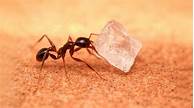Why Is My Pet Mouse Scratching Until It Bleeds?
It can be alarming to see your pet mouse scratching itself excessively, especially if it's causing the skin to bleed. There are a few reasons why this might be happening, and it's essential to identify the cause to ensure proper treatment and prevent further injury.

Causes of Excessive Scratching
1. Allergies: Mice can develop allergies to various substances, such as dust, pollen, or certain foods. Allergies can cause intense itching and lead to excessive scratching.
2. Skin Parasites: Mice are prone to infestation by various parasites, including mites, fleas, and lice. These parasites can cause intense itching and irritation, leading to excessive scratching.
3. Skin Infections: Bacterial or fungal infections can also cause itching and scratching. A skin infection can become serious if left untreated.
4. Contact Dermatitis: Contact with certain substances, such as detergents or certain plants, can cause irritation and itching of the skin, leading to excessive scratching.
5. Stress and Anxiety: Environmental stressors or changes in routine can cause stress and anxiety in mice, resulting in excessive scratching as a displacement behavior.
What to Do If Your Mouse Is Scratching Excessively
1. Examine the Mouse: Gently examine your mouse's skin for signs of parasites, skin infections, or allergic reactions. Look for redness, inflammation, scabs, or open wounds.
2. Clean the Mouse's Cage: Thoroughly clean and disinfect the mouse's cage, bedding, and toys to remove potential allergens or parasites.
3. Provide a Stress-Free Environment: Ensure your mouse has a comfortable and stress-free environment with plenty of hiding places, climbing structures, and toys.
4. Consult a Veterinarian: If the scratching persists or if you notice signs of infection or allergic reactions, take your mouse to a veterinarian for proper diagnosis and treatment.
Preventive Measures
1. Regular Grooming: Regularly brush your mouse's fur to remove loose hair, dirt, and parasites.
2. Avoid Irritating Substances: Keep your mouse away from potential allergens and irritants, such as plants or household chemicals.
3. Provide a Balanced Diet: Feed your mouse a healthy and balanced diet to support its immune system and overall well-being.
4. Monitor Changes in Behavior: Pay attention to changes in your mouse's behavior, as early detection of stress or anxiety can help prevent excessive scratching.
By understanding the causes of excessive scratching in mice and taking appropriate steps to address the issue, you can help ensure the comfort and well-being of your pet.
Declaration: All article resources on this website, unless otherwise specified or labeled, are collected from online resources. If the content on this website infringes on the legitimate rights and interests of the original author, you can contact this website to delete it.


